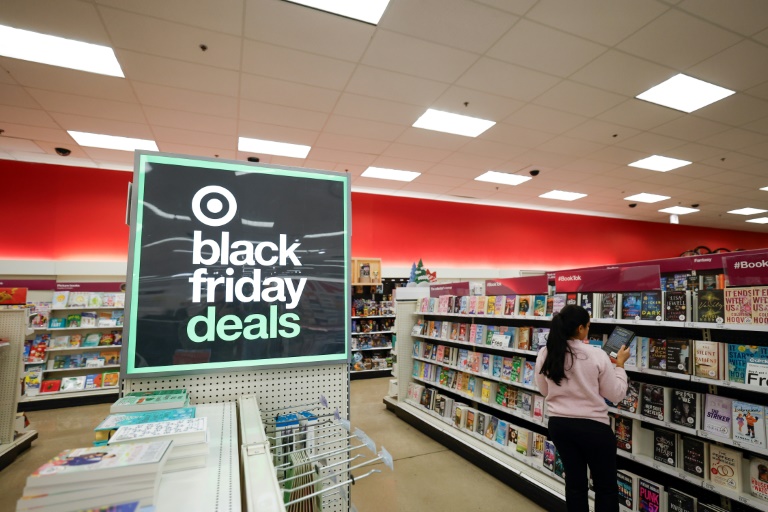How retailers can challenge a consumer-led Black Friday boycott

Black Friday opens a long commerce-centered weekend in the United States – Copyright AFP/File Richard A. Brooks
Retailers have been experiencing a slow in sales in the lead up to Black Friday. Some retailers have expressed anxieties about government policy; others are victims of consumer trends. When paired with the increasing number of consumers who are ‘boycotting’ Black Friday due to environmental and excess consumption reasons, retailers face an uncertain landscape.
To help retailers navigate these uncertainties and tackle the inevitable sales lulls both before and after the event, the firm Liquidation Centre has provided advice to Digital Journal.
Why are people saying ‘no’ to Black Friday?
An increasing number of consumers are refusing to participate Black Friday, with #BoycottBlackFriday circulating on social media. Recent research has revealed that 31% of people hate Black Friday, and a further 27% would join a boycott.
One of the main reasons for this shift in attitude is environmental concerns, with half of UK adults agreeing that it contributes to landfill waste and creates excess carbon emissions, questioning the value of mass sales. Additionally, a YouGov survey from 2025 found that 63% of UK consumers were deterred by misleading discounts during Black Friday and Cyber Monday, as interest declines.
However, for retailers the increasing negative sentiment around Black Friday can prove challenging as many face a sales lull both in the lead up to and after the day itself. When paired with the current economic uncertainty of the Budget and increasingly competitive environment of the retail sector, drops in Black Friday sales could prove damaging to businesses.
How businesses can engage shoppers and adapt as Black Friday loses traction
The report recommends that retailers consider the following actions:
Prioritise brand integrity and ethical initiatives
As sentiment towards Black Friday shifts, retailers must appeal to the more conscious and concerned consumer. Ethical initiatives such as using eco-friendly packaging and sustainable materials, or utilising electric vehicles for delivery services can all help to show consumers that the brand is addressing these growing environmental concerns, and helps to create a more loyal customer base who recognise the alignment with their values. With retail competition growing, strong and clear ethical principles help brands to stand out.
Build and maintain customer loyalty
Building and maintaining this trust is vital to consumer loyalty; without it, customers can be easily swayed by rival brands. Engagement and value should be consistent all year round and not just around Black Friday. Exclusive offers for existing customers and personalised recommendations can strengthen relevance and keep audiences engaged. Loyalty schemes in particular can help retailers provide data-backed tailored product recommendations which are more impactful than mass sales. Loyal customers are also typically less price-sensitive, helping retailers rely less on steep discounts.
Strategic and trustworthy marketing
With consumers becoming increasingly sceptical of Black Friday offers, trustworthy marketing efforts throughout the year with clear pricing can help to build confidence and reduce doubt. This can drive repeat business and strengthen relationships with customers. During sale periods, it’s particularly effective to highlight product quality and sustainability credentials, not just discounts.
Consistent and clear marketing also helps to prevent ‘customer exhaustion’ around Black Friday, where consumers are overwhelmed and disengaged due to financial strain, excessive promotions, and information overload. This burnout and fatigue contributes to a more wary approach to spending, and ultimately, a loss of revenue.
How to deal with a sales lull after Black Friday…
Targeted and intelligent marketing
Intelligent, data-driven marketing can help to ensure retailers experience less of a lull after the Black Friday rush. Nurturing new shoppers by sending personalised offers and encouraging reviews is a good way to sustain engagement. Retailers should also leverage AI-powered insights to deliver personalised content, analyse Black Friday shopping trends, and inform future marketing strategies.
Converting Black Friday customers into repeat customers is a great way to mitigate post-event sales lulls. Offering sign-up bonuses such as discounts can be effective, as well as rewarding repeat purchases and loyalty scheme members. Creating a sense of exclusivity with member-only benefits can further drive sales and help grow customer numbers beyond Black Friday.
Improved customer experience and consistent communications
Studies have found that 50% of consumers factor in how easy the check out process is when deciding where to shop, so creating a pleasurable experience here is vital in ensuring customers want to return, especially when Black Friday sales can create traffic at checkout systems. The checkout process can significantly influence conversion rates and if not up to standards, can cause online stores to lose a significant share of the growing e-commerce market.
Ensuring retailers have seamless purchase and post purchase processes such as exchanges and returns policies, excellent customer service, and personalised shopping experiences can all contribute to customers returning after Black Friday.
How retailers can challenge a consumer-led Black Friday boycott
#retailers #challenge #consumerled #Black #Friday #boycott






